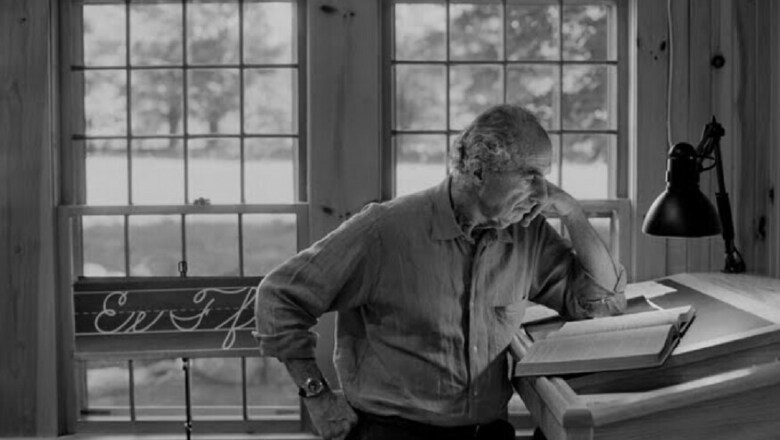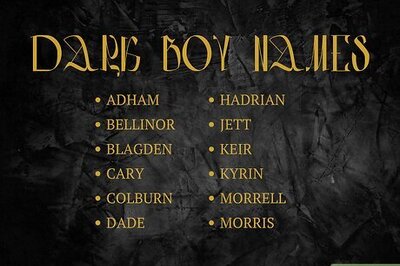
views
Earlier this year, in an interview to New York Times, talking about old age, Philip Roth said, “Right now it is astonishing to find myself still here at the end of each day. Getting into bed at night I smile and think, “I lived another day." And then it’s astonishing again to awaken eight hours later and to see that it is morning of the next day and that I continue to be here."
The American literary icon died on Tuesday night at a hospital in Manhattan. He was eighty-five.
In November 2012, Philip Roth had decided to quit writing. When he told the French magazine Les Inrockuptibles ‘I am done’, there was widespread disbelief. But, he had announced that his 24th novel, Nemesis, was his last. He told his readers he had "done the best he could with what he had".
In his long career, he was on a journey of exploration-- of what it means to be an American, a Jew, a writer, a man. Claudia Roth Pierpont once wrote that Roth’s favourite subjects included “the Jewish family, sex, American ideals, the betrayal of American ideals, political zealotry, personal identity," and “the human body (usually male) in its strength, its frailty, and its often ridiculous need."
Roth had lived many literary characters. First, there was Goodbye, Columbus (1959), a landmark postwar debut. Next came Portnoy's Complaint (1969), the late-60s comic sensation. Then came his experimental satirist through Our Gang (1971) and The Breast (1972). Next, My Life as a Man (1974) and The Professor of Desire (1977). When he was in his mid-60s, he explored America’s recent history in American Pastoral (1997), I Married a Communist (1998), The Human Stain (2000), The Dying Animal (2001) and The Plot Against America (2004).
Though the Nobel Prize eluded Roth, but he won most of the other top honors: two National Book Awards, two National Book Critics Circle awards, three PEN/Faulkner Awards, a Pulitzer Prize and the Man Booker International Prize. His novel “American Pastoral" won the Pulitzer Prize for Fiction, in 1998.
Roth was aware of his growth popularity. "I got sexual fame and I also got mad man fame. I got hundreds of letters, 100 a week, some of them letters with pictures of girls in bikinis. I had lots of opportunity to ruin my life," he had said in an interview. But, throughout his course of literary career, he never found writing easy. In his own words, he found it “arduous and un-doable".
“It’s laden with fear and doubt. It’s never easy—not for me. The ordeal is part of the task, and the satisfaction usually comes at the end. You stood up to it, you endured it! You achieved the unachievable—for you. But the next time out, I find it impossible all over again," he told Vanity Fair in this interview.
In his words, his writing career could be described as, “exhilaration and groaning. Frustration and freedom. Inspiration and uncertainty. Abundance and emptiness."
Despite the loneliness that he mentioned often came with a writers’ job, it was an extremely important job for him. “Writing for me was a feat of self-preservation. If I did not do it, I would die. So I did it. Obstinacy, not talent, saved my life….Maybe writing protected me against even worse menace," he had told The Telegraph in 2014.
When he was asked what kind of writer he was, he said, “I am who I don’t pretend to be."
Since he decided to stop writing, he spent a certain amount of time trying to set the record straight. He wrote a lengthy and impassioned letter to Wikipedia challenging their preposterous contention that he was not a credible witness to his own life.
He wrote, “I recently petitioned Wikipedia to delete this misstatement, along with two others, my interlocutor was told by the “English Wikipedia Administrator"—in a letter dated August 25th and addressed to my interlocutor—that I, Roth, was not a credible source: “I understand your point that the author is the greatest authority on their own work," writes the Wikipedia Administrator—“but we require secondary sources." Thus was created the occasion for this open letter. After failing to get a change made through the usual channels, I don’t know how else to proceed……"
The Wikipedia entry that Roth was upset about was about his novel ‘The Human Stain’ that was described as “allegedly inspired by the life of the writer Anatole Broyard." Roth wrote to Wikipedia saying that the novel was inspired by an “unhappy event" in the life of his late friend Melvin Tumin, professor of sociology at Princeton for some thirty years.
Eventually, Wikipedia backed down and redid the Roth entry in its entirety.
And while he had quit writing about over six years ago, recently, he had supervised the publication of “Why Write?," the 10th and last volume in the Library of America edition of his work.
With the kind of fandom that Roth enjoyed, you would expect him to live a fanciful life in his Upper West Side residence. He lived a quiet life, and it was pretty much a routine. “I do the same things every day. I work, I write. I read every night, which is one of the great pleasures of my life. I like my days of being by myself. I don’t see people, except on weekends. That’s the way I live," he said.
Once, when the author was asked about how we feels when looks back at his long list of work, most of which showed an angry side of his, he said, “I was in my twenties, for one thing, with no experience whatsoever of an assault so consequential—and so public—on my character. Also, I was being charged with embodying and propagating a hatred—Jew hatred—that I myself despised. I was angry and I was wounded, and so I lashed out with as much equanimity as I could muster. Now, in my eighties, of course I think, while reading these pieces, “Why did you bother?" The answer is because when it all happened, I wasn’t in my eighties. I was nearly as far from one’s eighties as a writer can get."
His 2004 novel “The Plot Against America," seems eerily prescient today. But how could he possibly know?
Roth had said that however similar the novel may seem to be, there was a huge difference between America in his fiction back then, and America in the current reality. He said while the Presiden’t character in his novel may have been a genuine racist and an anti-Semite and a white supremacist sympathetic to Fascism, he was also an “American hero" who became the first person to fly a trans-Atlantic solo flight. “Trump, by comparison, is a massive fraud, the evil sum of his deficiencies, devoid of everything but the hollow ideology of a megalomaniac," Roth had said.
During the #MeToo movement, given his experience writing about male sexual desire and its repercussions, Roth said none of what he had been reading about in the newspapers had astonished him. “I haven’t shunned the hard facts in these fictions of why and how and when tumescent men do what they do, even when these have not been in harmony with the portrayal that a masculine public-relations campaign — if there were such a thing — might prefer," he said.
Talking about life and old age, he had told NYT, in an interview, “It’s something like playing a game, day in and day out, a high-stakes game that for now, even against the odds, I just keep winning. We will see how long my luck holds out."
For Roth, the luck on life may have run out, but he will forever remain a winner.

















Comments
0 comment